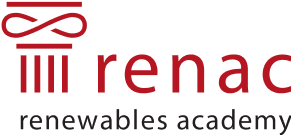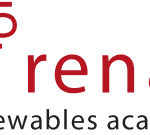This website uses cookies so that we can provide you with the best user experience possible. Cookie information is stored in your browser and performs functions such as recognising you when you return to our website and helping our team to understand which sections of the website you find most interesting and useful.
Customer-specific programmes
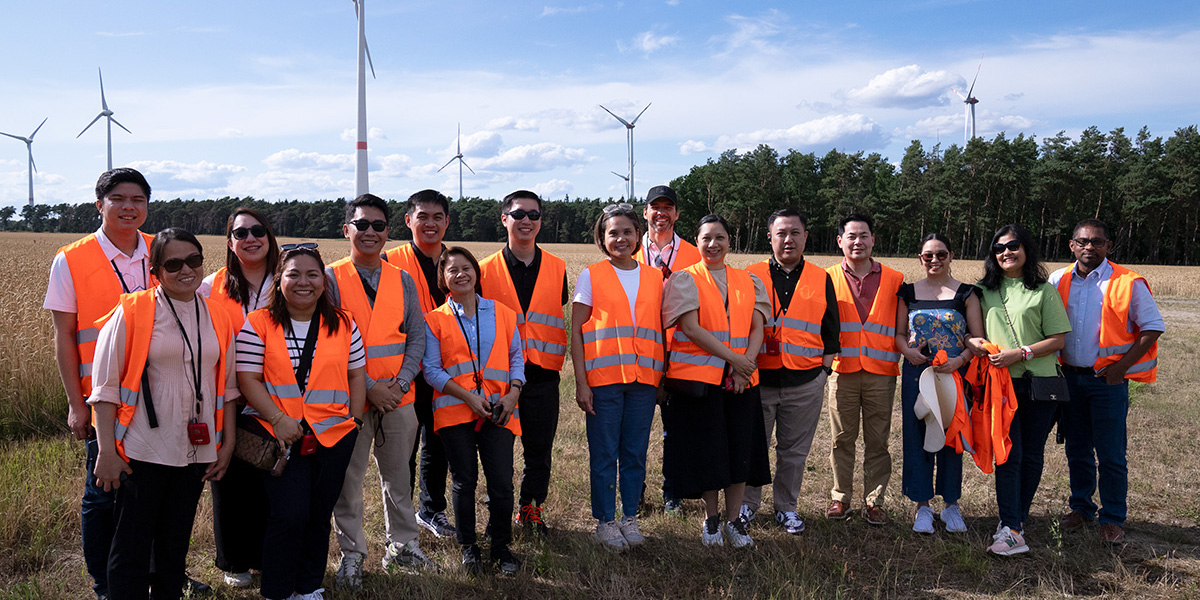
Job requirements in the green energy markets are complex and manifold. To ensure a company or organisation success, employees need extensive skills and up-to-date know-how.
RENAC customer-specific programmes offer the best way to meet participants’ training objectives:
- Analysis of participants’ capacity needs
- Selection of training contents and methods according to prior knowledge and needs
- The most suitable trainers
- Development of comprehensive materials with the highest quality standards
- Implementation of the training
Additionally, the training can be adjusted in duration and depth, organised for groups of various sizes and adapted to cover various technologies. Clients can determine when and where the training takes places.
Filter and search
Type
Name
Duration
Study time
Info
- annual energy production, technology, uncertainties and risks, wind resource
Content:
- Practical exercises to understand wind resource and technology for risk assessment
- Annual energy production of wind farms (AEP)
- Nature / quantity of uncertainties and wind project risks
- Working with laboratory wind turbines to understand how power curves are affected by wind seed changes and other variables
- Applying self-gained insights and results on the financial evaluation on a project
Learning objectives:
- Participants will have experienced a practice-based understanding of the main physical parameters of wind speed, power curves, obstacles, their measurement and resulting uncertainties that impact the annual energy output
- Participants will be able to explain the nature / quantity of uncertainties (e.g. wind measurement and wind variability), losses (e.g. wake effect and availability) and the relevance of a wind turbine power curve for the annual energy production and
- Participants will be able to assess the impact of the wind resource and wind technology of the financed asset on the project financial value and the risk assessment.
Target group:
This training suits professionals from the public and private sector working in the field of energy and finance.
- anaerobic digestion, biogas yield, design criteria, digestate, input substrates
Content:
- Technology review
- Sustainability aspects
- Classification of biogas plants
- Anaerobic digestion
- Biogas feedstock
- Energetic conversion of biogas
- Digestate as fertiliser
- Development and feasibility assessment of biogas projects
- Promotional frameworks and mechanisms
- Costs, profitability and financing
- Case study exercises
- Excursion to outstanding biogas projects
Learning objectives:
After the seminar participants will be able to:
- Explain the characteristics of the available biogas technologies as well as the feedstock and output of a biogas plant
- Calculate and evaluate the economic feasibility of a biogas plant
- Discuss legal frameworks and support mechanisms
- Evaluate the relevant steps when planning and implementing a biogas project
Target group:
- Project developers or engineers who want to expand their field of activities
- Employees of public authorities, ministries and governmental and non governmental organisations
- Farmers interested in Biogas Technology
- country case studies, independent power producer (IPP), overview / general aspects, productive energy use, Sub-Sahara Africa
hours
Content:
- Overview about energy use cases in Sub-Saharan Africa
- Productive energy use cases
- Consumptive energy use cases
- Use cases for green energy mini-grids
- Use cases for small independent power producers (IPP)
Learning objectives:
After completion of this course, participants will be able to:
- Understand common energy needs of business owners and consumers in the region
- Differentiate energy use cases for consumptive and productive purposes
- Gain an overview of implemented RE systems serving different use cases
- Explain trends in energy demand in sub-Saharan African countries and identify market drivers for RE systems
- Distinguish between power load and power consumption
- Compare power load profiles and CO2 emission savings of different energy use cases
- Discuss green energy solutions for different use cases in the following areas: large scale agriculture and livestock production, medium-scale industrial and commercial businesses, tourism industry, health and education sectors, and rural electrification.
Target group:
This training suits professionals who
- Intend to introduce and enhance the financing of green energy systems in their financial institution (e.g. bank managers and staff);
- Intend to promote green energy finance in the financial sector (e.g. policy and decision makers, public organisations)
- Aim at promoting investments in green energy systems among potential investors in the SME sector (e.g. project developers, representatives from associations, consultancies)
- Are potential investors for green energy systems (e.g. SMEs, large cooperatives, project developers)
- capacity planning, grid code parameters, grid congestion, variable renewable energy scheduling and operation
hours
Content:
• Time Series of Variable Renewable Energies
• System Operation: Scheduling and Forecasting
• Balancing Power Calculation Methodology
• Management of Grid Congestion
• Capacity Planning
• Grid Code Development
• Grid and System Integration Studies
Learning objectives:
After completing this course, participants will be able to:
- Explain the use and development of time series for variable renewable energy
- Present the basics about power system operation, scheduling and forecasting
- Describe the purpose and types of balancing power and management of grid congestion
- Discuss capacity planning methodologies, grid codes and the development of grid studies
Target group:
Professionals from the energy sector (engineers)
- standards and norms, technical parameters, wind turbine components
hours
Content:
• Wind turbine components
• Technical parameters
• Standards and norms
• Large wind farm operation and maintenance (O&M)
Learning objectives:
After completing the course, participants will be able to:
- differentiate wind turbine configurations
- explain in detail the components of a wind turbines
- recall applicable standards and norms for wind turbines and wind resource surveying
- describe the main activities in the operation and maintenance of a large wind farm
- understand the wind farm dismantling and repowering steps
Target group:
This training suits those who are interested in the details of wind technology
- cash flow valuation, due diligence, scenarios, sensitivities, simulation
Content:
The course on advanced wind power financing builds on the fundamentals covered in introductory course in practical manner. Additional topics covered include:
- Financial due diligence
- Exercises on annualized cash flow valuation
- Project comparison using sensitivities, scenarios and simulations
- Revision of key drivers beyond of wind project financing
- Best practice and requirements for valuation
- Training and exercises on cash flow modeling in a country specific context
Learning objectives:
After the seminar participants will be able to:
- Understand the process of financing wind power and the process of financial valuation in the context of project finance
- Understand meaning of a financial due diligence in the context of wind power project finance.
- Understand the practical process and necessities of financing a wind power project and know the relevant sources of funding and contracts
- Know, understand and assess the main the key drivers such as the tariff –scheme, issues concerning the project life time licenses and guarantees and the corresponding main project contracts and documents.
- Know and apply valuation for the purpose to quantify appropriate financing volumes.
- Apply financial cash flow modelling in advanced and comprehensive case studies
Target group:
Professionals from the public and private sector working in the field of energy and finance who may come from the following backgrounds:
- Ministries
- Regulators
- Financing institutions
- Project developers
- cash flow, contracts, financial terms, instruments, operational costs, project finance, revenues
Content:
- Wind power project financing basics and process
- Wind power project finance including cash flows and avenues for financing
- Technical due diligence in wind power projects
- Contracts in wind power projects
- Cash flows in wind power: revenues, cost, cash flow valuation and LCOE
- Risk management in wind power
- Financial terms and standard debt instruments used for wind power projects
Learning objectives:
- Participants will be familiar with the process of funding wind power projects
- Participants will be able to evaluate their investment and the critical associated risks
- Participants will have a basic understanding of the practical needs of lenders, investors and developers to fund wind power projects.
- Participants will be able to assess the practical question of how much funding is appropriate or fair in financial terms.
Target group:
Professionals from the public and private sector working in the field of energy and finance who may come from the following backgrounds:
- Ministries
- Regulators
- Financing institutions
- Project developers
- annual energy production, feasibility studies, resource assessment, uncertainties and risks, wind measurement
hours
Content:
• Wind farm planning and design
• Wind measurement
• Software overview
Learning objectives:
After completing the course, participants will be able to:
- identify fundamental wind farm planning and construction steps,
- estimate the duration of the wind farm planning steps,
- identify software for different purposes around wind power generation,
- state the purpose of measured wind data and
- explain why it is important to measure the wind resource at the project site.
Target group:
This training suits those who are interested in an overview on planning of wind farms and wind measurement
- CAPEX, large-scale, LCOE, offshore, onshore, OPEX, small-scale, wind turbine components
hours
Content:
• Wind power applications
• Introduction of wind turbine components
• Economical aspects of wind power
Learning objectives:
After completing the course, participants will be able to:
- distinguish the different applications of wind turbines and name the turbine components and
- identify economic and environmental aspects of wind power.
Target group:
Anyone who is interested in renewable energy technologies
Content:
- Practical exercises to understand wind resource and technology for risk assessment
- Annual energy production of wind farms (AEP)
- Nature / quantity of uncertainties and wind project risks
- Working with laboratory wind turbines to understand how power curves are affected by wind seed changes and other variables
- Applying self-gained insights and results on the financial evaluation on a project
Learning objectives:
- Participants will have experienced a practice-based understanding of the main physical parameters of wind speed, power curves, obstacles, their measurement and resulting uncertainties that impact the annual energy output
- Participants will be able to explain the nature / quantity of uncertainties (e.g. wind measurement and wind variability), losses (e.g. wake effect and availability) and the relevance of a wind turbine power curve for the annual energy production and
- Participants will be able to assess the impact of the wind resource and wind technology of the financed asset on the project financial value and the risk assessment.
Target group:
This training suits professionals from the public and private sector working in the field of energy and finance.
Content:
- Technology review
- Sustainability aspects
- Classification of biogas plants
- Anaerobic digestion
- Biogas feedstock
- Energetic conversion of biogas
- Digestate as fertiliser
- Development and feasibility assessment of biogas projects
- Promotional frameworks and mechanisms
- Costs, profitability and financing
- Case study exercises
- Excursion to outstanding biogas projects
Learning objectives:
After the seminar participants will be able to:
- Explain the characteristics of the available biogas technologies as well as the feedstock and output of a biogas plant
- Calculate and evaluate the economic feasibility of a biogas plant
- Discuss legal frameworks and support mechanisms
- Evaluate the relevant steps when planning and implementing a biogas project
Target group:
- Project developers or engineers who want to expand their field of activities
- Employees of public authorities, ministries and governmental and non governmental organisations
- Farmers interested in Biogas Technology
Content:
- Overview about energy use cases in Sub-Saharan Africa
- Productive energy use cases
- Consumptive energy use cases
- Use cases for green energy mini-grids
- Use cases for small independent power producers (IPP)
Learning objectives:
After completion of this course, participants will be able to:
- Understand common energy needs of business owners and consumers in the region
- Differentiate energy use cases for consumptive and productive purposes
- Gain an overview of implemented RE systems serving different use cases
- Explain trends in energy demand in sub-Saharan African countries and identify market drivers for RE systems
- Distinguish between power load and power consumption
- Compare power load profiles and CO2 emission savings of different energy use cases
- Discuss green energy solutions for different use cases in the following areas: large scale agriculture and livestock production, medium-scale industrial and commercial businesses, tourism industry, health and education sectors, and rural electrification.
Target group:
This training suits professionals who
- Intend to introduce and enhance the financing of green energy systems in their financial institution (e.g. bank managers and staff);
- Intend to promote green energy finance in the financial sector (e.g. policy and decision makers, public organisations)
- Aim at promoting investments in green energy systems among potential investors in the SME sector (e.g. project developers, representatives from associations, consultancies)
- Are potential investors for green energy systems (e.g. SMEs, large cooperatives, project developers)
Content:
• Time Series of Variable Renewable Energies
• System Operation: Scheduling and Forecasting
• Balancing Power Calculation Methodology
• Management of Grid Congestion
• Capacity Planning
• Grid Code Development
• Grid and System Integration Studies
Learning objectives:
After completing this course, participants will be able to:
- Explain the use and development of time series for variable renewable energy
- Present the basics about power system operation, scheduling and forecasting
- Describe the purpose and types of balancing power and management of grid congestion
- Discuss capacity planning methodologies, grid codes and the development of grid studies
Target group:
Professionals from the energy sector (engineers)
Content:
• Wind turbine components
• Technical parameters
• Standards and norms
• Large wind farm operation and maintenance (O&M)
Learning objectives:
After completing the course, participants will be able to:
- differentiate wind turbine configurations
- explain in detail the components of a wind turbines
- recall applicable standards and norms for wind turbines and wind resource surveying
- describe the main activities in the operation and maintenance of a large wind farm
- understand the wind farm dismantling and repowering steps
Target group:
This training suits those who are interested in the details of wind technology
Content:
The course on advanced wind power financing builds on the fundamentals covered in introductory course in practical manner. Additional topics covered include:
- Financial due diligence
- Exercises on annualized cash flow valuation
- Project comparison using sensitivities, scenarios and simulations
- Revision of key drivers beyond of wind project financing
- Best practice and requirements for valuation
- Training and exercises on cash flow modeling in a country specific context
Learning objectives:
After the seminar participants will be able to:
- Understand the process of financing wind power and the process of financial valuation in the context of project finance
- Understand meaning of a financial due diligence in the context of wind power project finance.
- Understand the practical process and necessities of financing a wind power project and know the relevant sources of funding and contracts
- Know, understand and assess the main the key drivers such as the tariff –scheme, issues concerning the project life time licenses and guarantees and the corresponding main project contracts and documents.
- Know and apply valuation for the purpose to quantify appropriate financing volumes.
- Apply financial cash flow modelling in advanced and comprehensive case studies
Target group:
Professionals from the public and private sector working in the field of energy and finance who may come from the following backgrounds:
- Ministries
- Regulators
- Financing institutions
- Project developers
Content:
- Wind power project financing basics and process
- Wind power project finance including cash flows and avenues for financing
- Technical due diligence in wind power projects
- Contracts in wind power projects
- Cash flows in wind power: revenues, cost, cash flow valuation and LCOE
- Risk management in wind power
- Financial terms and standard debt instruments used for wind power projects
Learning objectives:
- Participants will be familiar with the process of funding wind power projects
- Participants will be able to evaluate their investment and the critical associated risks
- Participants will have a basic understanding of the practical needs of lenders, investors and developers to fund wind power projects.
- Participants will be able to assess the practical question of how much funding is appropriate or fair in financial terms.
Target group:
Professionals from the public and private sector working in the field of energy and finance who may come from the following backgrounds:
- Ministries
- Regulators
- Financing institutions
- Project developers
Content:
• Wind farm planning and design
• Wind measurement
• Software overview
Learning objectives:
After completing the course, participants will be able to:
- identify fundamental wind farm planning and construction steps,
- estimate the duration of the wind farm planning steps,
- identify software for different purposes around wind power generation,
- state the purpose of measured wind data and
- explain why it is important to measure the wind resource at the project site.
Target group:
This training suits those who are interested in an overview on planning of wind farms and wind measurement
Content:
• Wind power applications
• Introduction of wind turbine components
• Economical aspects of wind power
Learning objectives:
After completing the course, participants will be able to:
- distinguish the different applications of wind turbines and name the turbine components and
- identify economic and environmental aspects of wind power.
Target group:
Anyone who is interested in renewable energy technologies
Target Groups
Public sector officials for legal frameworks, regulation and implementation:

- Ministries
- Regulators
- Local administrations
Multipliers and development organisations:

- Development corporations
- Energy agencies
- International financing institutions
- NGOs
Private sector:

- Project developers
- System integrators
- Engineers and technicians
- Investors
- Financing institutions
- Grid operators
Capacity building and dissemination sector:

- Public and private training institutions
- Vocational training institutions
- Universities
Value Chain
We design and implement customer-specific programmes and services along the value chain in a holistic concept.
Our approach to Renewable Energy (RE) and Energy Efficiency (EE) is manifold: technology related knowledge is the basis and then each RENAC training and service focus on technical, economic, legal or project related aspects according to the target group. RENAC is also very active in international business matchmaking and market development services.
In our capacity building services we supply a variety of programmes to train trainers, to build training centres and to establish quality assurance processes.
Our Training Concept
Customer-Specific Programmes – what does it mean?
We offer customer-specific programmes according to client needs and participant job requirements in all green energy sectors. Based on an analysis of requested knowledge or specific job tasks and the level of existing knowledge, we develop a training concept proposal.
The concept includes recommendations for online or in-person trainings, or both. We develop the training concept taking the given resources on budget and learning time into account. After feedback from the client, we fine-tune the concept for approval.
Depending on the needs of our clients, we offer different levels of trainings (basic, intermediate, and advanced).
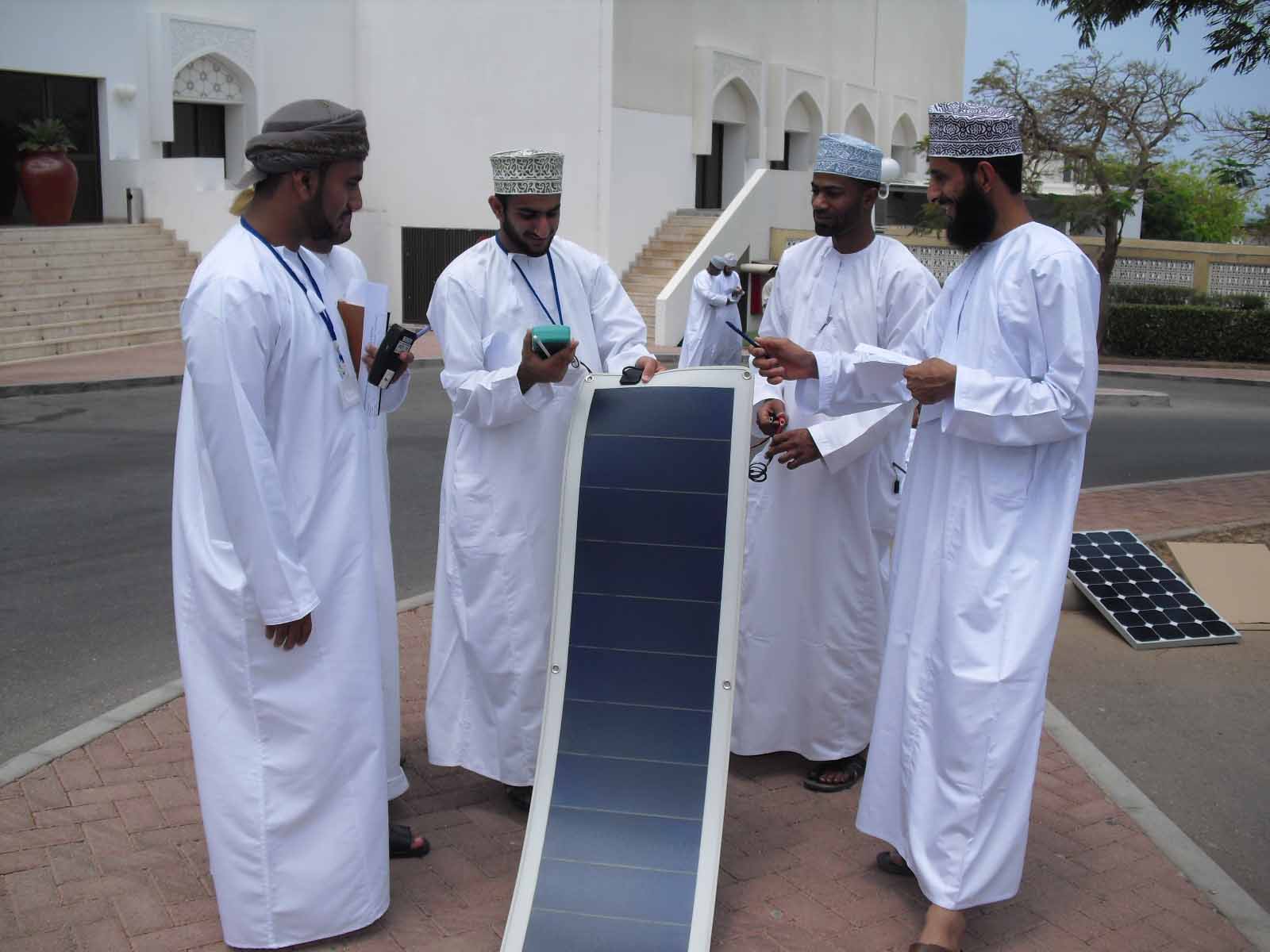
Service Catalogue
Find detailed information about the programme that best aligns with your needs and preferences.
Are you interested in a Customer-specific programmes?
Kindly fill out this questionnaire and attach it to the form on the right:
© 2024 | Renewables Academy (RENAC) AG
